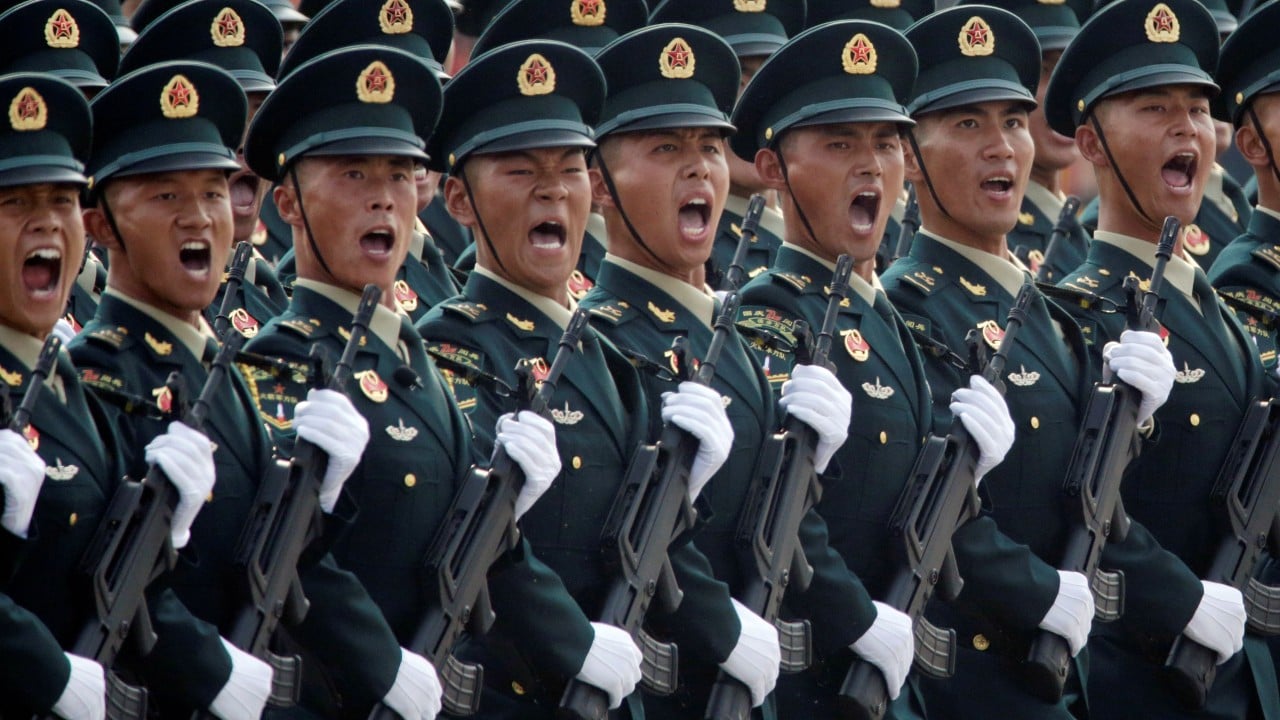
China sharpens economic espionage penalties in ‘tit-for-tat provision’ against US accusations of trade secret theft
- Proposed section of criminal code targets theft of trade secrets by foreign entities, as US cases against Chinese nationals soar
- Draft of the law, which is out for review until August 16, has flown under the radar until now
China is amending its criminal code to cover trade secrets theft by foreign businesses, a change that could give Beijing a tool to retaliate against the United States for alleged economic espionage.
The proposed new section on economic espionage by foreign firms, which has flown under the radar of many foreign intellectual property lawyers, is part of a wider amendment to the country’s criminal code.
A draft of the law has been released for public review until August 16. If passed, the punishment for stealing Chinese trade secrets to benefit a foreign entity will be much more severe than the current three-year jail sentence for general trade secret theft.
The new clause will target any person or company that “steals, spies, buys, or illegally provides trade secrets to foreign institutions, organisations, and personnel”.

04:12
Are Xi Jinping’s China and Donald Trump’s US destined for armed conflict?
Strong penalties can help China resist “raging attacks” by foreign economic agents to capture trade secrets and better protect China’s national interests, said a joint report by procuratorial departments in Shanghai earlier this year.
Some lawyers have said the new clause in China’s criminal code is a clear response to US espionage cases against Chinese entities.
“Given the deteriorating relations between China and the US, I expect there to be a surge of US legal proceedings on Chinese-related economic espionage cases, so the intention of this amendment is self-evident, that is, it is reciprocal and a tit-for-tat provision against the US,” said a Beijing-based trade lawyer, who asked to be identified only by his surname Xu due to the sensitivity of this topic.
“If the US prosecutes more Chinese in the future, then China can do the same under this amendment once it is passed.”
The US Department of Justice’s (DOJ) China Initiative, a project launched in November 2018 to investigate and prosecute Chinese companies for alleged trade secret theft, economic espionage, and other violations of American law, said in a report in June that about 80 per cent of all economic espionage prosecutions brought by the DOJ allege conduct that would benefit the Chinese state. In about 60 per cent of all trade secret theft cases, there was at least some connection to China, it said.
“There’s no country that presents a broader or more comprehensive threat to America’s innovation, to our economic security and to our democratic ideas,” Wray said.
The trade secret provision [of Chinese law] is similar to the US Economic Espionage Act that the US Department of Justice has been using to target Chinese Americans and Chinese nationals
Under the US Economic Espionage Act, penalties for theft of trade secrets include fines of up to US$500,000 per offence and imprisonment of up to 15 years for individuals, as well as fines of up to US$10 million for organisations.
The Chinese law does not set a maximum for jail terms or fines, but in theory under China’s criminal code it could be up to 15 years and include fines that could exceed US$10 million, said Xu.
“The trade secret provision [of Chinese law] is similar to the US Economic Espionage Act that the US Department of Justice has been using to target Chinese Americans and Chinese nationals,” said Aaron Wininger, director of the China Intellectual Property Practise at California-based law firm Schwegman Lundberg & Woessner.
“The Chinese amendment would seem to be a reciprocal provision and I would expect China would like to have some prosecutions under it once the law is passed.”

02:29
‘Chinese spy defector’ says he helped China’s interference in Hong Kong and Taiwan
The significant increase in prosecutions against Chinese nationals in the US, combined with statements by the Trump administration, likely encouraged China to draft the new provision that targets the purchase of stolen trade secrets by foreign nationals, he said.
It has been an open secret that multinational companies have engaged in commercial espionage in China, said Zhao Bingzhi, an expert on criminal law at Beijing Normal University.
In 2010, China sentenced Australian citizen Stern Hu, the former head of global miner Rio Tinto’s China iron ore business, and three Chinese colleagues to between seven and 14 years in jail for stealing trade secrets that helped Rio in iron ore negotiations with Chinese mills.

